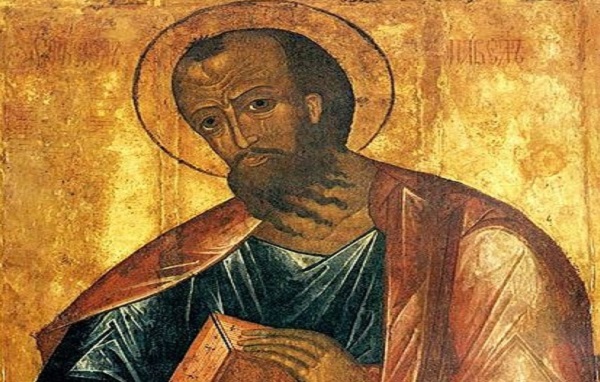Theology of Events (Titus 3, 8-15)
18 July 2022A superficial reading of today’s epistle gives the impression of dry moralism. Saint Paul twice urges the faithful to devote themselves to good works, considering these to be evidence of the fruits of the spirit. And he recommends them to avoid heretics [‘divisive people’] ‘after a first and second admonition’.
True or merely useful?
The obvious question often arises: ‘Why should I be a Christian, especially an Orthodox one, if I have to avoid heretics, when I can still be a good person without being a member of the Church? Aren’t there any good heterodox people, those of other religions or none, who have performed a great many good works?’. Clearly, if someone asks this question, it’s like saying: ‘I’m not interested in whether Christianity’s true or not. All I care about is how it helps me to be a good person. My criterion isn’t its truth but its usefulness’. But the value of Christianity isn’t restricted to its utility. The Christian faith isn’t merely a system of morality. George Florovsky, a leading Orthodox theologian emphasizes that: ‘The Orthodox faith is a theology of events’. It’s witness to events. If the events to which Christianity bears witness are made up, then no sincere person should want to believe them, no matter how useful they may be.
When, in today’s reading, Saint Paul desires Titus to speak to the faithful with certainty and authority concerning what he, Paul, has just written in the preceding portion of the letter, he’s not referring to the moral injunctions, but to salvation in Christ. In other words, to the fact that, at a particular historical time and place, human and divine natures were united in the person of Christ, in a way that was unconfused and indivisible. Without ceasing to be perfect God, Christ also became perfectly human, ‘without sins’. He thus made it possible for us not simply to become better people, but to be renewed, to become new people and to inherit eternal life. It’s this saving truth which is blazoned by the holy Fathers who constituted the 4th Ecumenical Synod in Chalcedon. We commemorate them today. At sixteen sessions, in October 451, they reached unanimous decisions after fruitful discussions.

Heresy: separation from God
Of course, these discussions are in no way similar to those which Saint Paul urges Titus to avoid. The latter were ‘stupid controversies’ (Titus 3, 9), which resulted in pointless quarrels and clashes over matters of Jewish law. They were started by Judaizing Christians who were attached to the letter of the law, which they demanded be observed, imperfect and precursory though it was, even at the time of the perfect law of the Gospels and the manifestation of salvation in Christ. Naturally, this led to at least a mutation, if not nullification, of Church life. In the end, it led to heresy.
So, for Saint Paul and the Fathers of the Church, heresy isn’t simply a theoretical disagreement. It’s an erroneous way of life. Even if it appears, on the outside, to be a morally upright life, it’s actually false because it’s cut off from the saving truth and unity of the one Church. Christ says, however, that on the day of judgement some people will hear ‘I do not know you’, even though they’ve not only lived a moral life, but have even been enabled to cast out demons and to perform many other miracles in Christ’s name. (Matth. 7, 22-23).
This is what Abba Agathon (in the Book of the Elders) had in mind when he accepted without complaint accusations that he was a fornicator, a slanderer, proud and talkative. But when he was called a heretic, he reacted and said that he wasn’t. When they asked him why he couldn’t endure this particular accusation, he answered: ‘I charge myself with the first offences, because they’re beneficial to my soul. Heresy, though, is separation from God and I don’t want to be separated from God’. For Abba Agathon ‘separation from God’ isn’t a separation from a subjective concept of God, but from the saving truth of the one Church, which is to say separation from real Life.
The responsibility of being in the Church.
Such deadly separation from the Church should be a cause for concern for the shepherd, who should constantly be admonishing those who have gone astray to return to the fold of salvation. The bounds of the two efforts which Saint Paul sets clearly shouldn’t be applied to the letter. Saint Augustine’s conversion certainly wasn’t the result of two admonishments on the part of Saint Monica. And Saint Basil’s Jewish doctor didn’t become a Christian after only two attempts by the saint. Saint Paul was simply saying that an experienced shepherd has the discernment to realize when to stop trying to round up the stray or raise the fallen, so as not to ‘beat the air’, as Saint John Chrysostom says.
Today’s Epistle reading, therefore is anything but an extract from a manual of ethics, since it reminds us that the point of Christ’s incarnation wasn’t merely to improve our morals, but also to induct us into his one Church, that is deification by grace and eternal salvation, for which we’re absolutely responsible.






